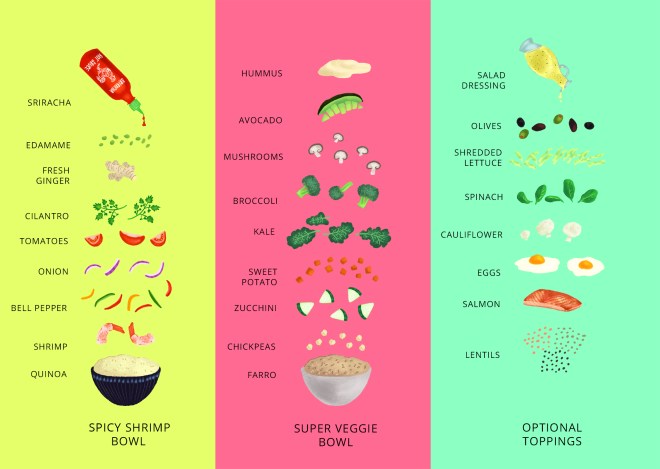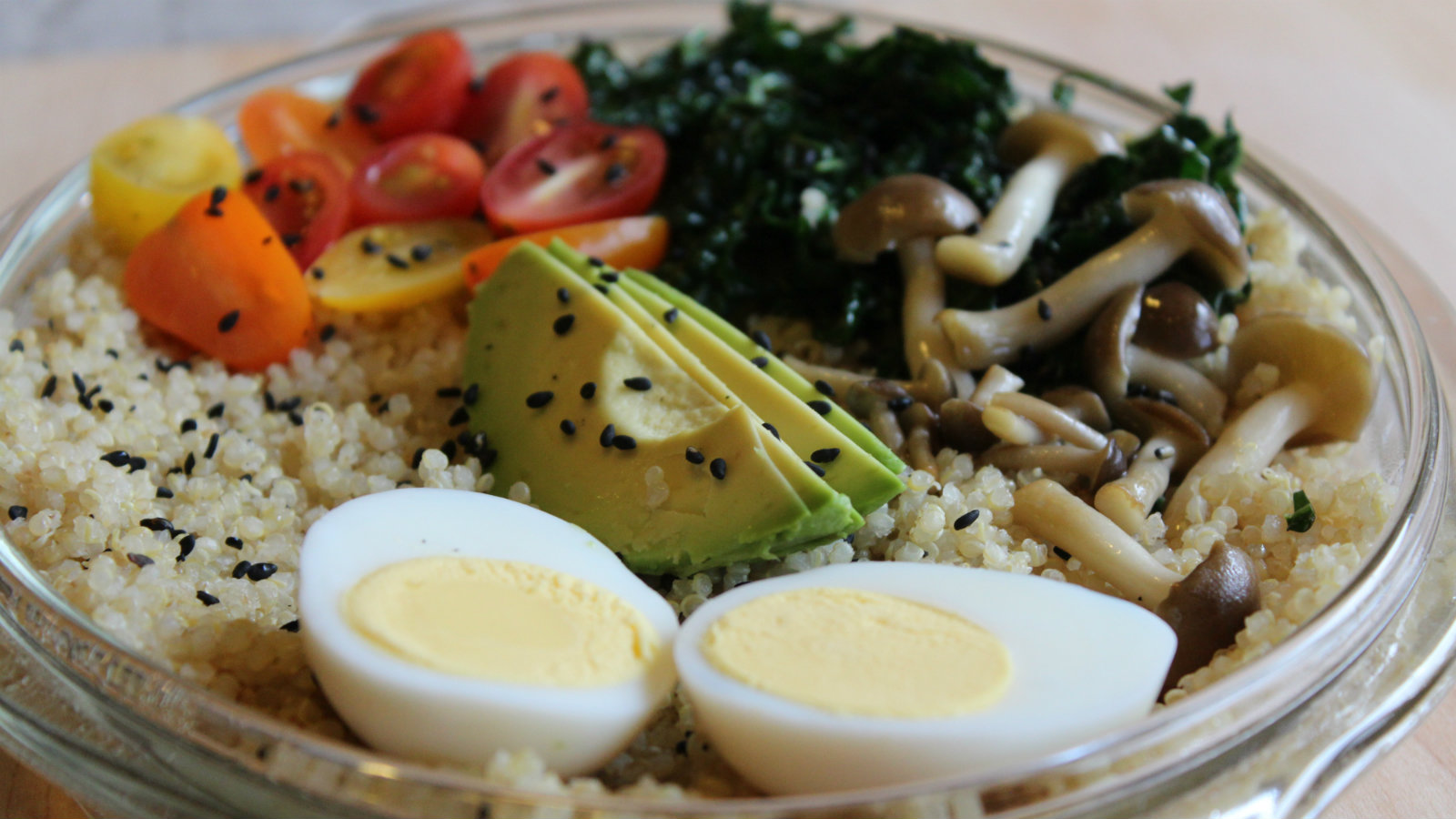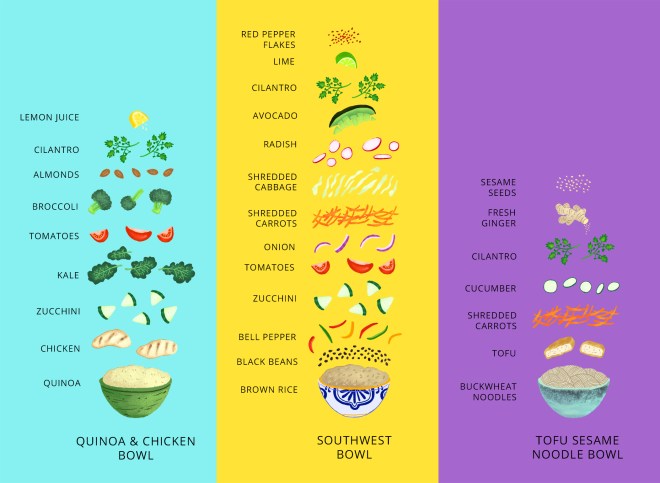Au revoir, nicoise. Though salads have long been the lunch choice of the health conscious, the New York Post reported that “hot, skinny people” have moved on to power bowls. What’s a power bowl, you might ask? It basically references a balanced combination of veggies, whole grains, and protein … IN. A. BOWL. Mind blown, right?
The Post detailed the post-yoga, bowl-eating ritual of Justine Parker and Lily Kunin, two ladies in their late twenties who are among, one must conclude, said “hot, skinny people” in question. As Parker told the Post, “Even if I had the option to eat off a plate, I would eat out of a bowl.” In fact, Parker is so committed to bowls that, apparently, she only eats out of bowls whenever possible. Her pal Kunin compared the satisfaction of eating power bowls to “a hug.”
Yes, Parker and Kunin are clearly alien lizard people failing in their attempts to seem human. But you probably know a Parker or a Kunin. Heck, you might even be a Parker or a Kunin. Don’t be embarrassed, though — it’s time to embrace our overlords, along with the bowls they worship. And why not? Power bowls are a nutrient-packed, filling meal option. And using a bowl instead of a plate just means you can more easily mix the ingredients together or top it with a dressing. (If a bowl is like a hug, a plate is a chest bump.) And you don’t need to spend $12 at a restaurant to try one. Mix and match these ingredients to make your own killer power bowl at home:
Or give these combinations a whirl:

Click to embiggen.Grist / Amelia Bates
Recipe: Gluten-free, Japanese-inspired egg and quinoa breakfast bowl
Power bowls tend to be relegated to lunch, but they don’t have to be. Make hardboiled eggs ahead of time, throw some quinoa in a rice cooker, and quickly sauté some veggies for an easy, savory breakfast bowl. You can use as much or as little of each ingredient as you see fit, though this recipe offers some guidance for making two servings.
Ingredients:
- Two hard or softboiled eggs
- ½ cup quinoa
- Four medium lacinato kale leaves, stemmed and thinly sliced
- 1 cup mushrooms (We used buna-shumeji)
- 1 tablespoon black sesame seeds1 slice of lemon
- ½ cup of cherry tomatoes, sliced in half
- ¼ avocado, sliced
- Olive oil
- Salt
Place eggs in a large saucepan, cover with cool water by an inch, and bring the water to a boil over medium heat. Once the water boils, remove the eggs from the heat, cover, and let the eggs set in the water for 12 minutes. For softboiled eggs (highly recommended if you’re making them fresh), only let them sit covered for two minutes. For easy peeling, remove the eggs from the hot water and let them cool in an ice-water bath for five minutes.
Quinoa can be easily cooked ahead of time and keeps well in the refrigerator. Cooked one part quinoa to two parts water in a saucepan by bringing it to a boil, reducing the heat, covering and simmering for 15 to 20 minutes until most of the liquid has been absorbed. Alternatively, quinoa can be cooked like rice in a rice cooker. Lightly salt the quinoa once it’s finished cooking for added flavor or omit the salt for a low-sodium meal.
Add a small amount of olive oil to a pan and lightly sauté the mushrooms over medium heat until they just barely begin to soften. Once the mushrooms are done, the kale can be thrown in to sauté until it becomes just barely wilted.
With quinoa as the base, add the veggies and other toppings in whatever arrangement you see fit. Top the kale with a small squeeze of lemon and sprinkle the entire dish with the sesame seeds. Mix it all up with your spoon and enjoy as a balanced start to the day.






